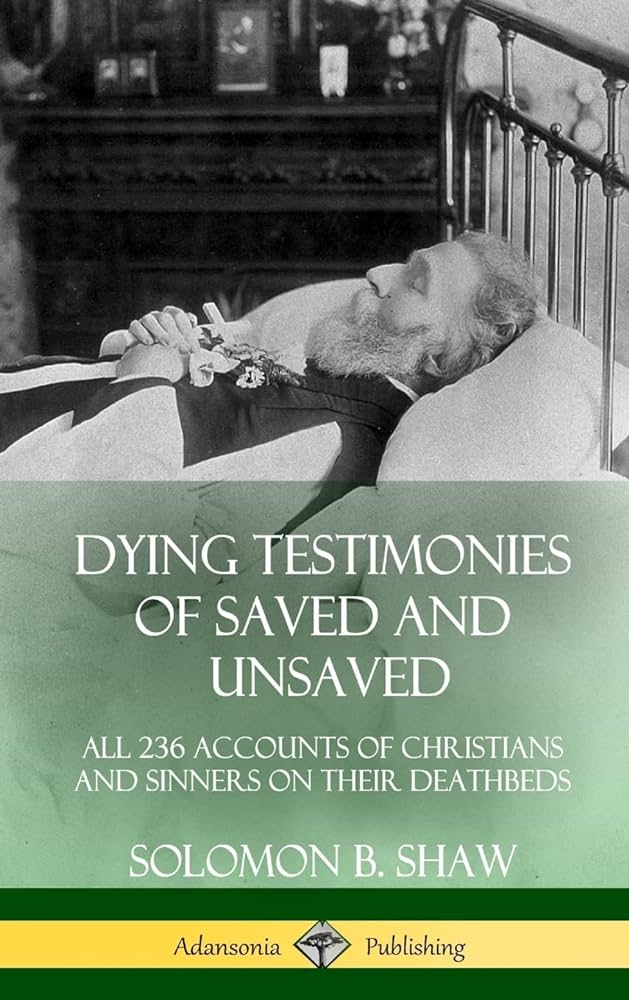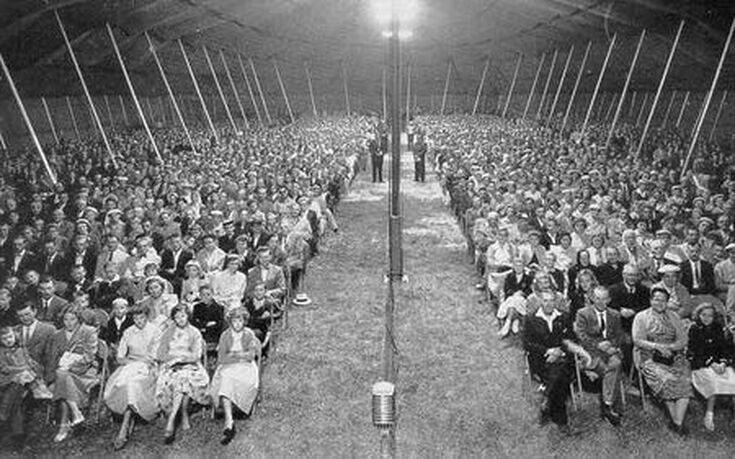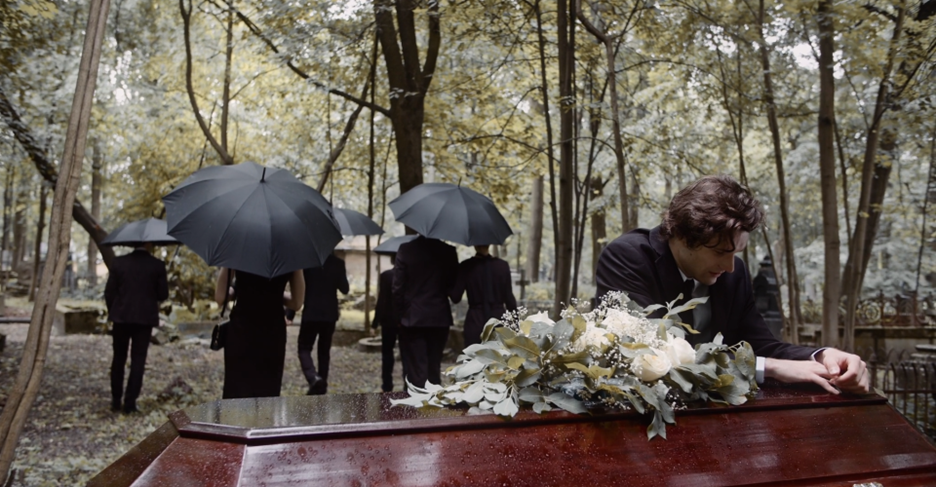Near L____ lived P____ K____, talented and wealthy, but a hater of God, of the Lord Jesus Christ and of the Holy Bible. He talked, lectured and published books and tracts against the Savior and the sacred scriptures, circulating them freely wherever he could. His influence for evil had been very great in all that country for years.
From a near neighbor and from members of his household, the following facts are learned concerning his death:
The man's death-bed beggared description is truly horrifying. He clinched his teeth, and blood spurted from his nostrils while he cried "Hell! Hell! Hell!" with a terror that no pen can describe. A neighbor declared that he heard him a quarter of a mile away. His family could not endure the agony of that death-bed scene. They fled to the woods across the road, and there remained among the trees until all became quiet at home. One by one they ventured back, only to find the husband and father cold in death. He literally had been left to die alone, abandoned of God and of man.
From a near neighbor and from members of his household, the following facts are learned concerning his death:
The man's death-bed beggared description is truly horrifying. He clinched his teeth, and blood spurted from his nostrils while he cried "Hell! Hell! Hell!" with a terror that no pen can describe. A neighbor declared that he heard him a quarter of a mile away. His family could not endure the agony of that death-bed scene. They fled to the woods across the road, and there remained among the trees until all became quiet at home. One by one they ventured back, only to find the husband and father cold in death. He literally had been left to die alone, abandoned of God and of man.
| This shocking testimony is an excerpt from a book that was written and compiled by Solomon B. Shaw in 1898, entitled, "Dying Testimonies of the Saved and Unsaved". “Not only have millions upon millions of God’s children witnessed in life and death of Jesus’ power to save, but most infidels, skeptics, and sinners of every grade are constrained to acknowledge the truth of the Christian religion before they die.” - S.B. Shaw “Multitudes, while dying, see and hear things that are not seen or heard by others.” - S.B. Shaw |











 RSS Feed
RSS Feed